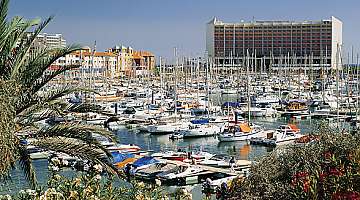UK residency rules and connecting factors

Published on
As an expatriate, you're probably accustomed to the practice of counting the number of days required to establish or maintain tax residency. There are quite a few countries where the rule is 183 days of residency per year, though the UK rule is 190 days per year over a four year period. However, tax residency isn't always just counting days and there are regulations in place in some countries which make you liable for taxes under certain situations.
In 2012, the UK plans to introduce a statute defining tax residence. While the law is yet to be passed, the consultation document currently available states that someone's status as a resident depends on more than just where they spend X amount of days annually. The proposed statute will include tests which aim to prevent people from becoming non-resident by spending less than a certain number of days in the country and will require them to limit some of their connections with the country to be considered a non-resident. While the proposed rules are more straightforward and clear than the ones currently in place, there are still more than complex enough to confuse anyone who is not a tax professional.
The number of nights per year which you need to spend in the UK is based on the days in a UK tax year (which ends at midnight on 5 April). There will be separate rules for those defined as Arrivers, Leavers and those who work full time in other countries.
The new laws include five connecting factors: family living in the UK (spouses or partners and/or children under the age of 18); substantive employment in the United Kingdom; the maintenance of a home in the UK; presence in the UK in previous years; and having spent more time in the UK than in any other country.
The rules for Leavers stipulate that UK expatriates who spend less than 10 nights in the UK each year cannot be considered a resident despite any other connecting factors. However, on the other hand, those who spend 182 or more nights per year in the country or who maintain a home only in the UK will always be considered a tax resident despite any other connecting factors (or lack thereof). This can only be overridden by a double tax treaty with any other countries that the individual in question may be liable for taxes in.
Other than for Leavers, the decision of whether you will be considered to be a tax resident in the UK will depend on how many nights a year you spend in the country and how many connecting factors apply in your case.
The following are two examples of how situations might work out under the new regulations:
Andrew and Lauren have retired, sold their home in London and are moving to Lagos, which they plan to make their permanent residence other than occasional visits to the UK. The couple have one connecting factor and under the new rules, they can spend as many as 119 nights in the UK annually without being considered UK tax residents as long as they stay in hotels and do not stay elsewhere on a regular basis. The 6 April following their departure from the UK is when these rules would begin to apply to Sarah and David.
Mark and Katrina have maintained their permanent residence in Almancil ever since their retirement a decade ago and are no longer considered UK tax residents. They still have a flat in Exeter, where they stay when visiting her children and grandchildren; the couple spends 90 days or more in the flat each year. The couple have two connecting factors, but unlike the couple in the previous example, Anne and John are classified as Arrivers rather than as Leavers and may spend as many as 119 nights per year in the UK without falling into the category of UK tax residents; if they were considered leavers, this would be limited to only 89 nights per year.
There are also rules which are applicable to those who work fulltime in other countries and whose families stay behind in the UK. These persons are considered to be nonresidents for tax purposes as long as they spend 89 nights or less in the UK and work less than 20 days annually in the UK - this is defined as working less than three hours per day, which is pretty difficult to prove or disprove in any case.
For expatriates living in Portugal, Portuguese residency laws need to be considered. UK residence rules do not invalidate the double tax treaty between the UK and Portugal, though there are situations where a UK citizen may find themselves considered a UK tax resident rather than a tax resident of Portugal. In order to be perfectly clear where you stand and to know what your obligations are, you should get advice from Blevins Franks or another firm which is experienced in dealing with international tax residency situations.
Expatriates should also be aware that whether or not they are liable for IHT (UK inheritance taxes) depends on their legal domicile, not their residence. You may live in Portugal yet still be liable for IHT on your estate. If your estate is larger than the IHT threshold, then you may want to look into ways to reduce or eliminate your tax liability for the sake of your heirs.
Tax rates and rules are subject to change and any statements found here are based solely on our own understanding of the current laws and regulations. The content here is solely for informational purposes; seek the advice of a tax attorney for personalized guidance.
More information on Tax in Portugal can be found here on our website. For infomation relating to buying property in Portugal contact the Portugal Property team via email at info@portugalproperty.com or call free on +44 (0) 800 014 8201
Published in: Taxation